Bangladesh’s Nobel laureate, Muhammad Yunus, has been asked to lead the interim government following a political crisis that forced Prime Minister Sheikh Hasina to flee the country on Monday. At 84, Yunus praised the student-led protests that had led to Hasina’s fall, calling it a ‘Second Victory Day’. He has been critical of Hasina’s strict rule over the past 15 years. He now takes charge after one of the deadliest protests in the nation’s history, which resulted in over 300 deaths and thousands of arrests.
Bangladesh’s Nobel laureate, Muhammad Yunus, has been asked to lead the interim government following a political crisis that forced Prime Minister Sheikh Hasina to flee the country on Monday. At 84, Yunus praised the student-led protests that had led to Hasina’s fall, calling it a ‘Second Victory Day’. He has been critical of Hasina’s strict rule over the past 15 years. He now takes charge after one of the deadliest protests in the nation’s history, which resulted in over 300 deaths and thousands of arrests.
The protests had begun over a job quota system that reserved more than half of the jobs for specific groups, including one-third for the descendants of Bangladesh’s 1971 War of Independence veterans. Although the Supreme Court reduced the quotas on July 21, it did not satisfy the protesters. “This is our beautiful country with many exciting possibilities. We must protect it and make it wonderful for ourselves and for future generations,” Yunus told reporters.
The recent protests, which started over government job quotas, grew into a larger movement driven by the youth, who make up a third of the population. They are calling for a new type of politics that emphasises greater democracy and accountability.
Yunus faces significant challenges, including restoring law and order, reviving the economy and ensuring free and fair elections. Ahmed Ahsan, a former World Bank economist and director of the Policy Research Institute in Bangladesh, said Yunus was “the man of the hour”, firmly backed by students protesters who led the movement,” according to Al-Jazeera.
Championing Cause of the Poor
Yunus, the third among nine children of his parents, was born in a village near Chittagong, in erstwhile East Pakistan, in 1940. The year 1961 saw him graduating from the University of Dhaka and travelling to the US on a Fulbright scholarship in 1965 to do his Ph.D in economics at Vanderbilt University, finishing in 1969. After that, he became an assistant professor at Middle Tennessee State University.
During Bangladesh’s 1971 Liberation War, Yunus supported the movement for Bangladesh’s independence. He helped create a citizens’ committee in Nashville and worked with the Bangladesh Information Center in Washington, DC, to lobby Congress to stop military aid to Pakistan. In 1972, after Bangladesh gained independence, Yunus returned home. He worked at Bangladesh’s new Planning Commission for a short while before he joined the University of Chittagong’s economics department.
In 1976, while conducting field research, he visited villages affected by famine. He loaned $27 to 42 villagers and they all repaid him on time. This experience showed him that small loans, or microcredit, could significantly help poor villagers, who were often trapped by high-interest moneylenders. It led to the creation of Grameen Bank, which focused on providing microcredit to help people start businesses. Yunus became known as the ‘Banker to the Poor’ for helping millions escape poverty through this initiative.
Recipient of the 2006 Nobel Prize
In 2006, the Nobel Peace Prize went to Yunus and Grameen Bank for their efforts to promote economic growth and social equity at the grassroots level. By then, the bank had lent over $7 billion to more than seven million borrowers, 97% of whom were women, with an impressive repayment rate of nearly 100%.
Yunus is now navigating the challenging world of politics, moving beyond just theory. His immediate task at hand is to restore stability after five weeks of violent protests. But he faces a bigger problem: an economic crisis with rising food prices and a stagnant job market.
Jon Danilowicz, a former US diplomat who worked in Bangladesh for eight years, believes Yunus is a strong choice for leadership because of his international reputation, which could benefit the 170 million people in the country. Danilowicz noted that Yunus had significant credibility, especially in the US and could leverage the goodwill there to help Bangladesh.
He also outlined three major challenges for the interim government:
Addressing economic issues
Untangling political influences in such key institutions as the civil service, police and judiciary, and
Holding serious human rights violators accountable
He needs to quickly establish civilian leadership and ensure that the army returns to its usual role of supporting the government, Danilowicz said. On the diplomatic side, Yunus will need to build a friendly relationship with India, which has supported the Hasina administration. Hasina is currently visiting India.
Targeted by former PM Hasina
Yunus became a target of Hasina’s anger after he suggested starting a political party in 2007. His idea for a party came because the two main political parties—Hasina’s Awami League and the Opposition Bangladesh Nationalist Party (BNP)—were failing to tackle widespread corruption and growing income inequality.
In 2011, Hasina, seeing the respected economist as a political threat, removed him from his role as managing director of Grameen Bank, calling him a “bloodsucker” of the poor. Her government then launched financial investigations into his non-profit organizations. Last year, Yunus was convicted of violating labour laws and faces an ongoing corruption case that many believe is unfounded.
Yunus has faced ongoing persecution from the previous government, but he never thought of leaving the country. Instead, he has chosen to support his own institution and his nation, thus opting to be a patriot.
Disappointed with India’s Response
In an interview with the Indian Express, Yunus expressed his disappointment with India’s view that the protests in Bangladesh were an internal matter. He questioned how a fire in a neighbour’s house could be called an “internal matter”. He added, "We want to have friendly relations with all neighbouring countries. We want to feel like a family and enjoy each other’s company, just like the European Union. When India labels it ‘an internal issue’, it hurts me.”
(The author of this article is a Defence, Aerospace & Political Analyst based in Bengaluru. He is also Director of ADD Engineering Components, India, Pvt. Ltd, a subsidiary of ADD Engineering GmbH, Germany. You can reach him at: girishlinganna@gmail.com)
Disclaimer: The views expressed above are the author's own and do not reflect those of DNA
Find your daily dose of news & explainers in your WhatsApp. Stay updated, Stay informed- Follow DNA on WhatsApp.
 Meet man, who worked as waiter, later cracked UPSC exam in 7th attempt with AIR...
Meet man, who worked as waiter, later cracked UPSC exam in 7th attempt with AIR... Bad news for Pakistan! India develops world's most dangerous artillery gun, can directly target Lahore from Amritsar, to be procured till...
Bad news for Pakistan! India develops world's most dangerous artillery gun, can directly target Lahore from Amritsar, to be procured till...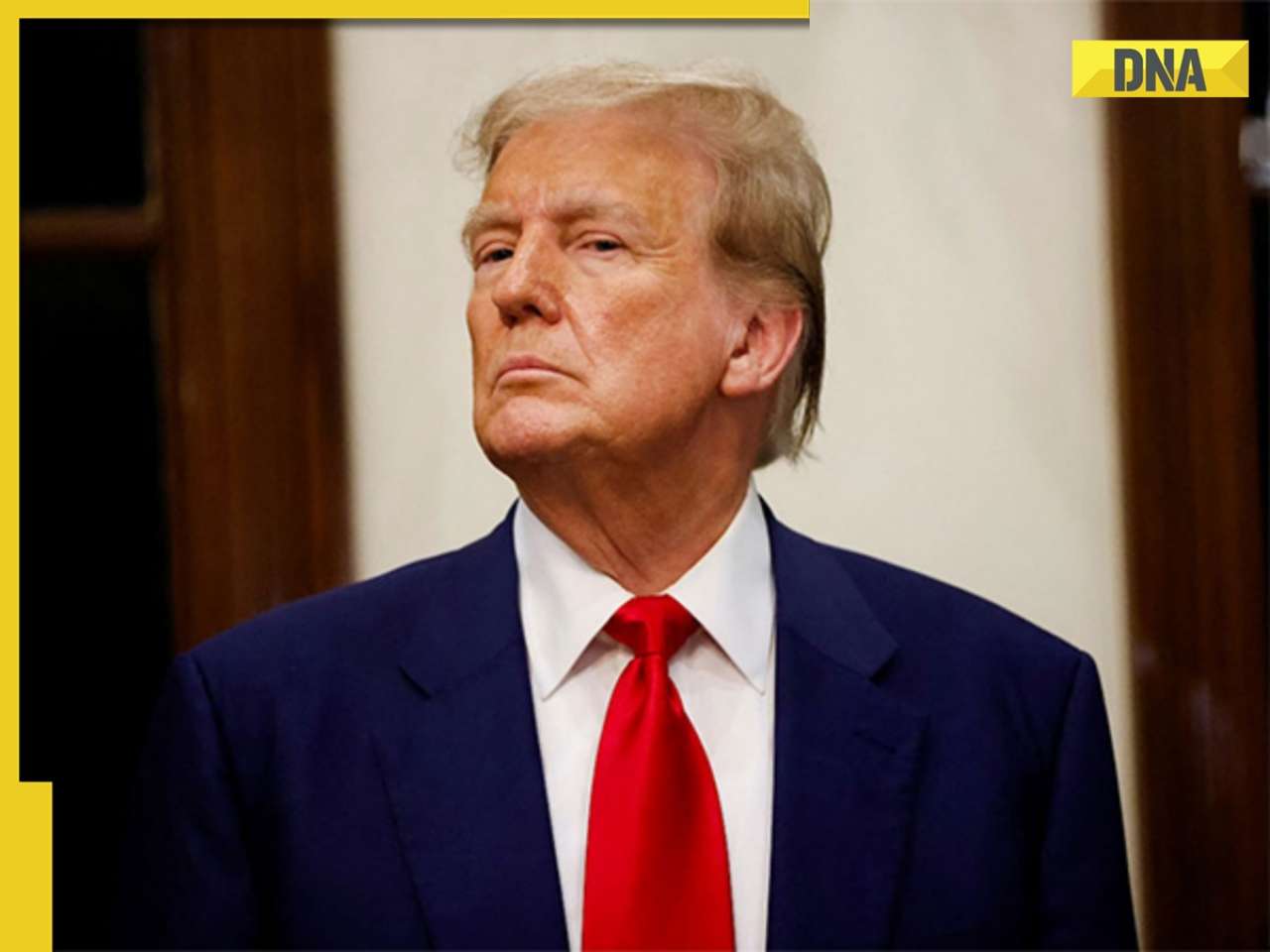 'Going to have access...': Donald Trump confirms progress in India-US trade deal after Indonesia tariff agreement
'Going to have access...': Donald Trump confirms progress in India-US trade deal after Indonesia tariff agreement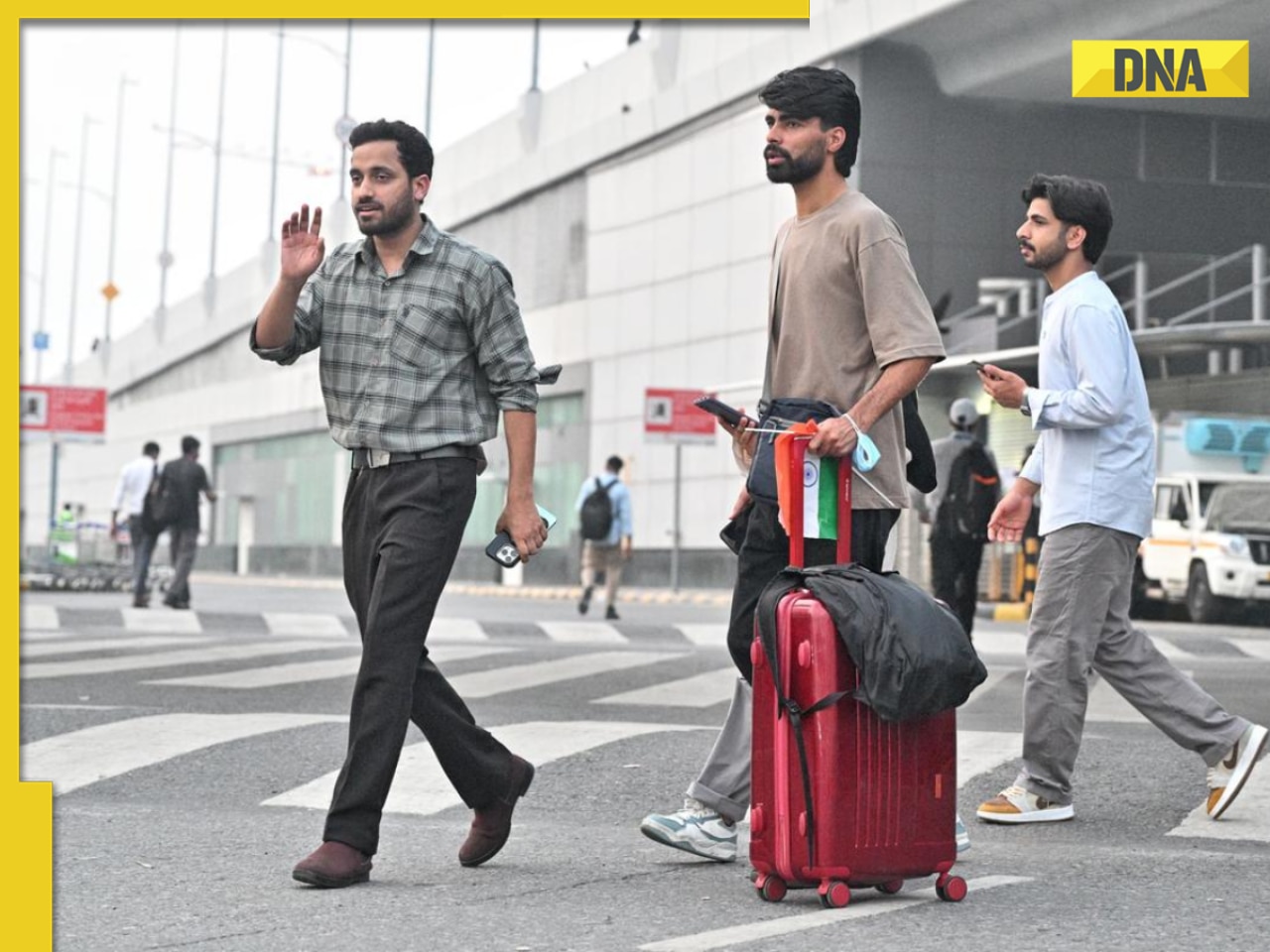 India issues fresh travel advisory, asks citizens to avoid going to THIS country: 'Carefully consider...'
India issues fresh travel advisory, asks citizens to avoid going to THIS country: 'Carefully consider...'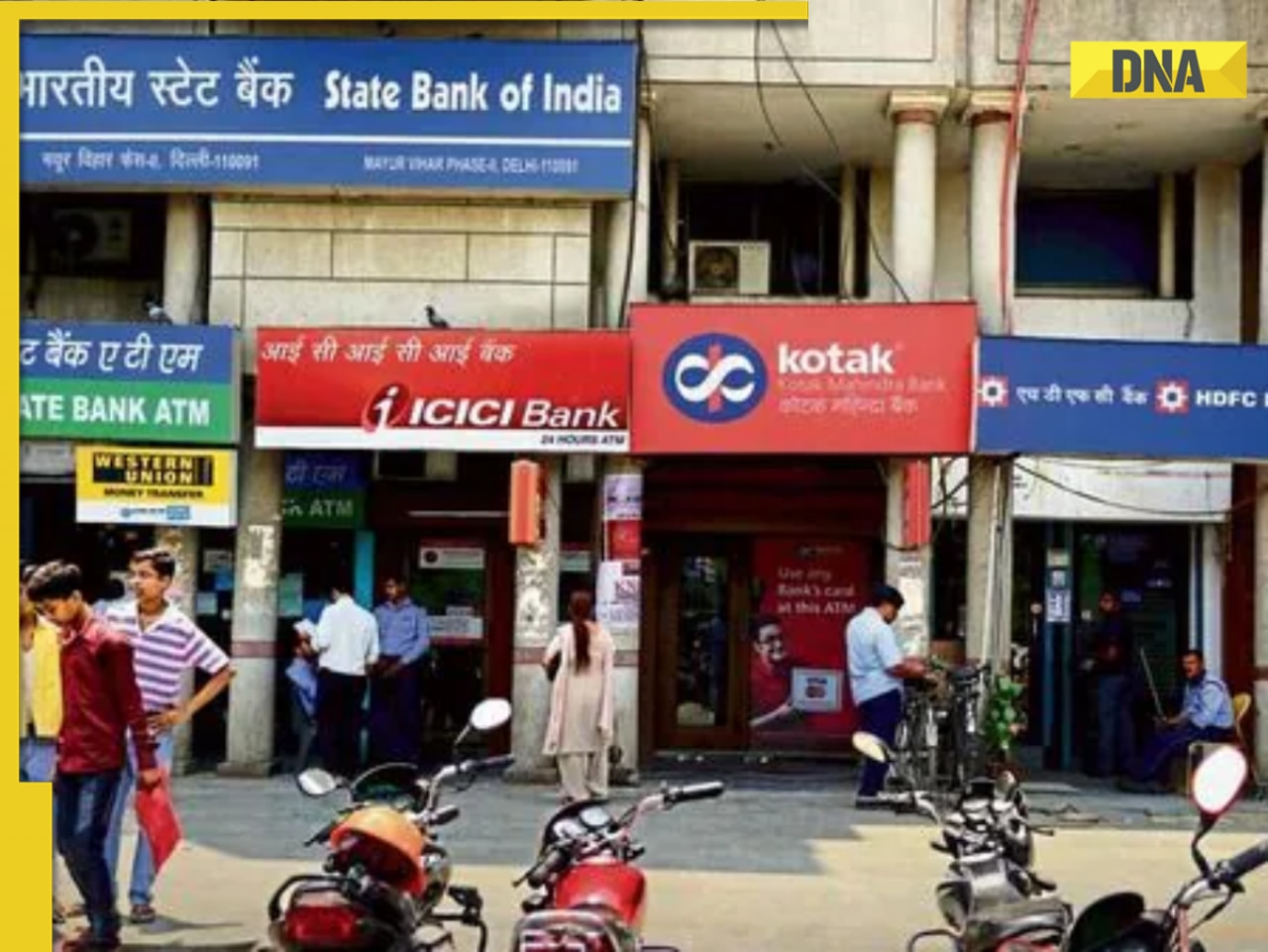 THIS govt company in HUGE debt, defaults on bank loans worth whopping Rs...
THIS govt company in HUGE debt, defaults on bank loans worth whopping Rs... 7 mesmerising images of star formation captured by NASA
7 mesmerising images of star formation captured by NASA What is brain fog? 7 Ways to overcome it
What is brain fog? 7 Ways to overcome it Sawan 2025: Move beyond Tip Tip Barsa Paani, this rainy season groove on these sizzling songs
Sawan 2025: Move beyond Tip Tip Barsa Paani, this rainy season groove on these sizzling songs Kang Seo‑ha to Kim Sae‑ron: K‑drama, K-pop icons we lost recently
Kang Seo‑ha to Kim Sae‑ron: K‑drama, K-pop icons we lost recently Our Golden Days, My Lovely Journey, Beyond the Bar: 8 must-watch K-dramas in August 2025
Our Golden Days, My Lovely Journey, Beyond the Bar: 8 must-watch K-dramas in August 2025 Odisha Girl Self Immolation Case: Odisha CM Announces Rs 20 Lakh Aid For Kin Of Balasore Student
Odisha Girl Self Immolation Case: Odisha CM Announces Rs 20 Lakh Aid For Kin Of Balasore Student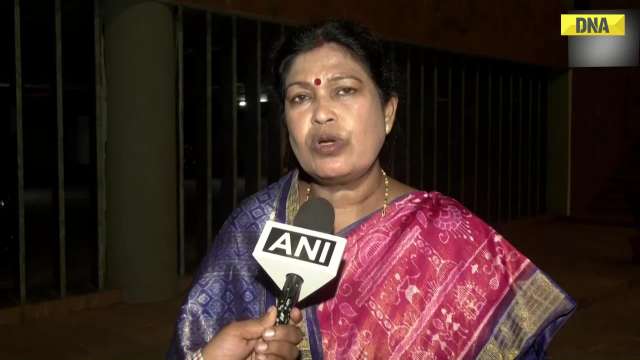 Odisha Girl Self-Immolation Case: BJD leader Slams Odisha Govt After Balasore Student Dies
Odisha Girl Self-Immolation Case: BJD leader Slams Odisha Govt After Balasore Student Dies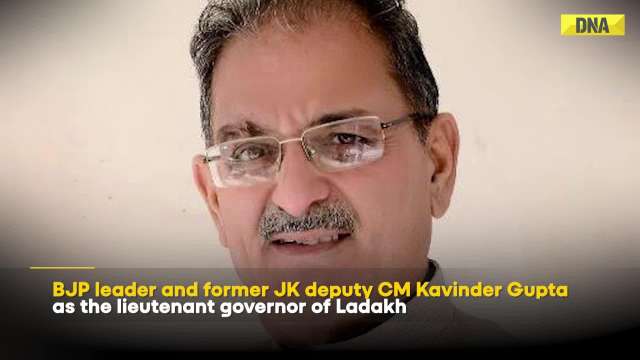 President Murmu Appoints New Governors For Haryana, Goa; Kavinder Gupta Named LG Of Ladakh
President Murmu Appoints New Governors For Haryana, Goa; Kavinder Gupta Named LG Of Ladakh Bombay Stock Exchange Receives Bomb Threat From 'Comrade Pinarayi Vijayan', '4 RDX IED In Building'
Bombay Stock Exchange Receives Bomb Threat From 'Comrade Pinarayi Vijayan', '4 RDX IED In Building' India Pakistan News: New Paramilitary Force In Pakistan Sparks Crackdown Fears
India Pakistan News: New Paramilitary Force In Pakistan Sparks Crackdown Fears THIS govt company in HUGE debt, defaults on bank loans worth whopping Rs...
THIS govt company in HUGE debt, defaults on bank loans worth whopping Rs... Tesla cars will be priced cheaper in Delhi and Mumbai than Gurugram, here’s why, check cost difference here
Tesla cars will be priced cheaper in Delhi and Mumbai than Gurugram, here’s why, check cost difference here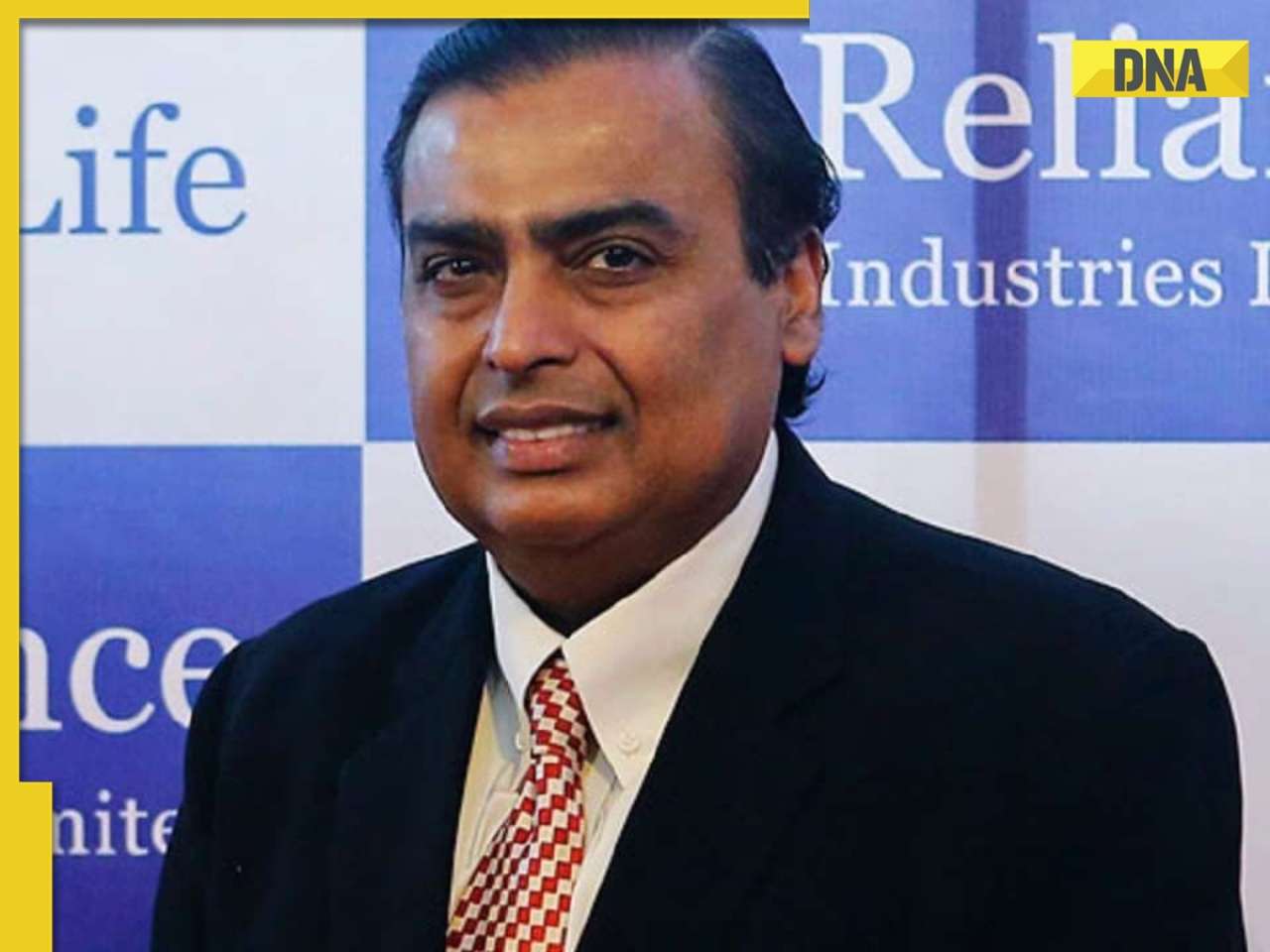 Mukesh Ambani's Reliance's BIG win as Delhi HC directs e-commerce platforms to...
Mukesh Ambani's Reliance's BIG win as Delhi HC directs e-commerce platforms to...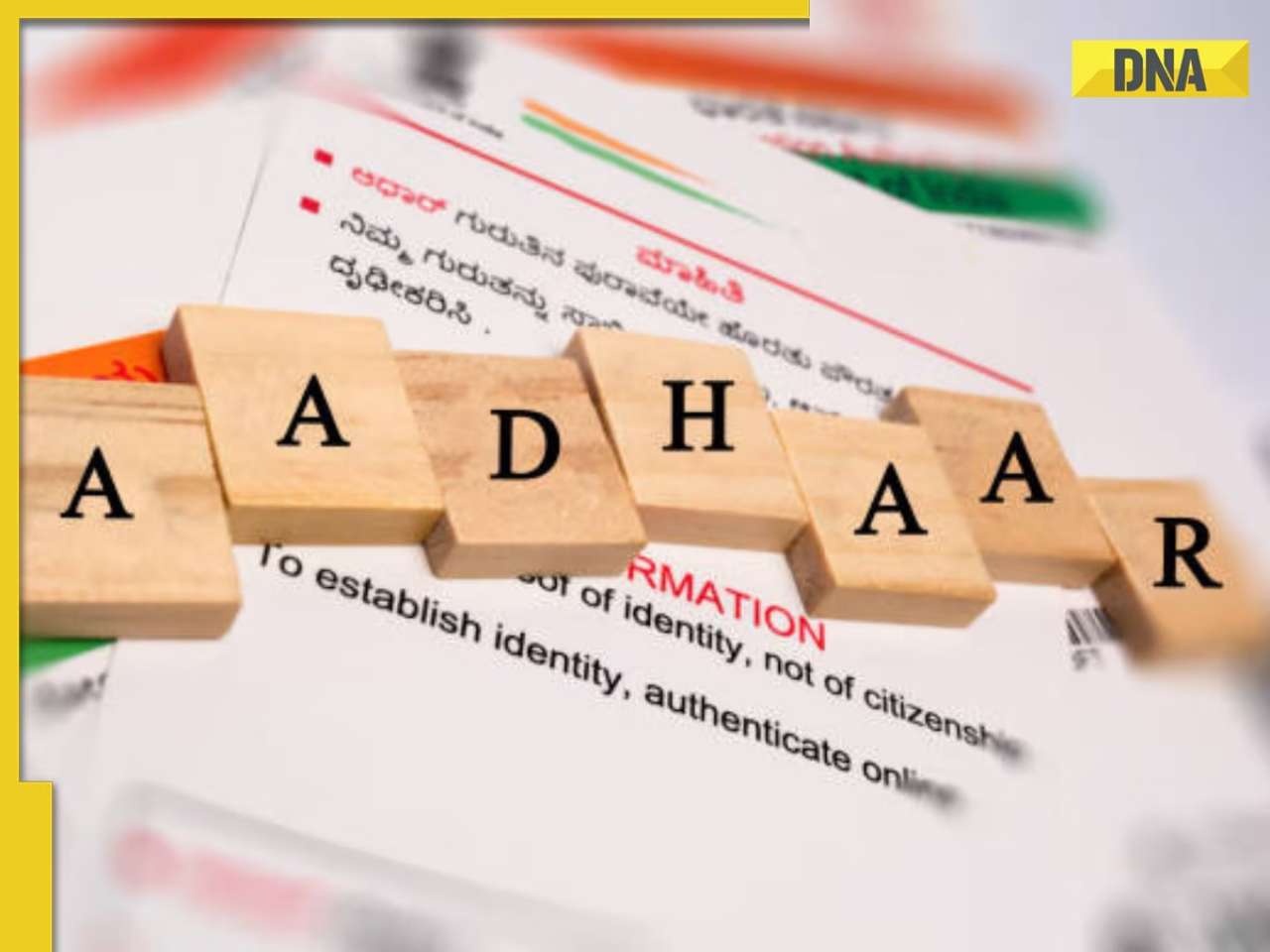 UIDAI shares BIG update on children above 7 with Aadhaar: 'To face risk of...'
UIDAI shares BIG update on children above 7 with Aadhaar: 'To face risk of...' Meet woman who started as trainee, will now become CEO of..., won major award at Cannes, she is...
Meet woman who started as trainee, will now become CEO of..., won major award at Cannes, she is...  Then and now: What Daniel Radcliffe, Emma Watson, Rupert Grint and more Harry Potter cast members doing now?
Then and now: What Daniel Radcliffe, Emma Watson, Rupert Grint and more Harry Potter cast members doing now? Which Visa lets you travel to multiple countries? Learn about Visas that fit your needs
Which Visa lets you travel to multiple countries? Learn about Visas that fit your needs Chhoriyan Chali Gaon contestants list out: Anita Hassanandani, Aishwarya Khare, and others join Rannvijay Singha's show
Chhoriyan Chali Gaon contestants list out: Anita Hassanandani, Aishwarya Khare, and others join Rannvijay Singha's show Laapataa Ladies' Pratibha Ranta returns in Revolutionaries with Bhuvam Bham, Rohit Saraf: All you need to know about Nikkhil Advani's series
Laapataa Ladies' Pratibha Ranta returns in Revolutionaries with Bhuvam Bham, Rohit Saraf: All you need to know about Nikkhil Advani's series Ananya Panday's vacation photos go viral: A peek into her sun-kissed moments, beach outfits, and carefree vibes
Ananya Panday's vacation photos go viral: A peek into her sun-kissed moments, beach outfits, and carefree vibes Bad news for Pakistan! India develops world's most dangerous artillery gun, can directly target Lahore from Amritsar, to be procured till...
Bad news for Pakistan! India develops world's most dangerous artillery gun, can directly target Lahore from Amritsar, to be procured till...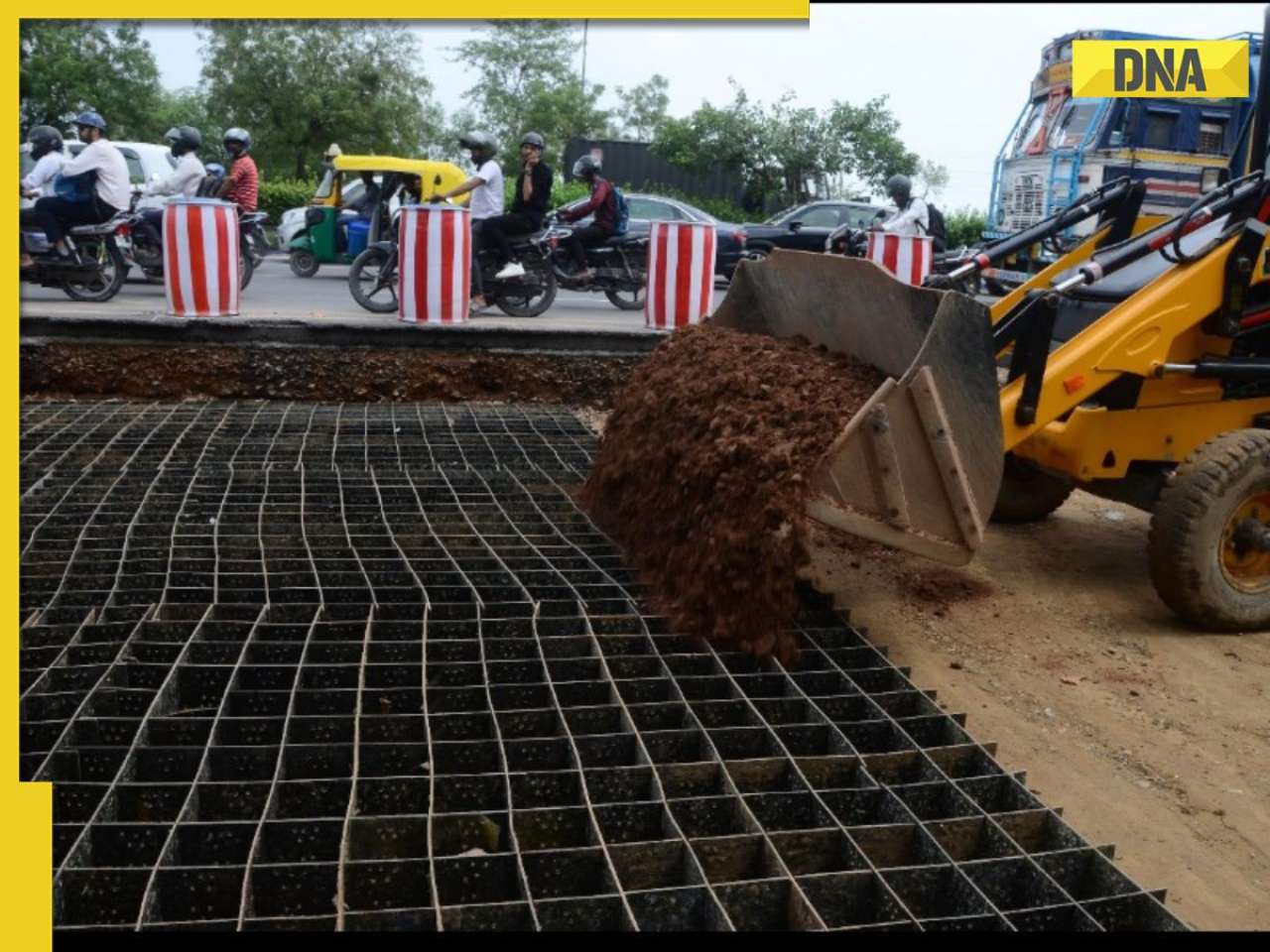 India's first plastic road to be built with Geocell Technology in..., know all about this sustainable initiative
India's first plastic road to be built with Geocell Technology in..., know all about this sustainable initiative 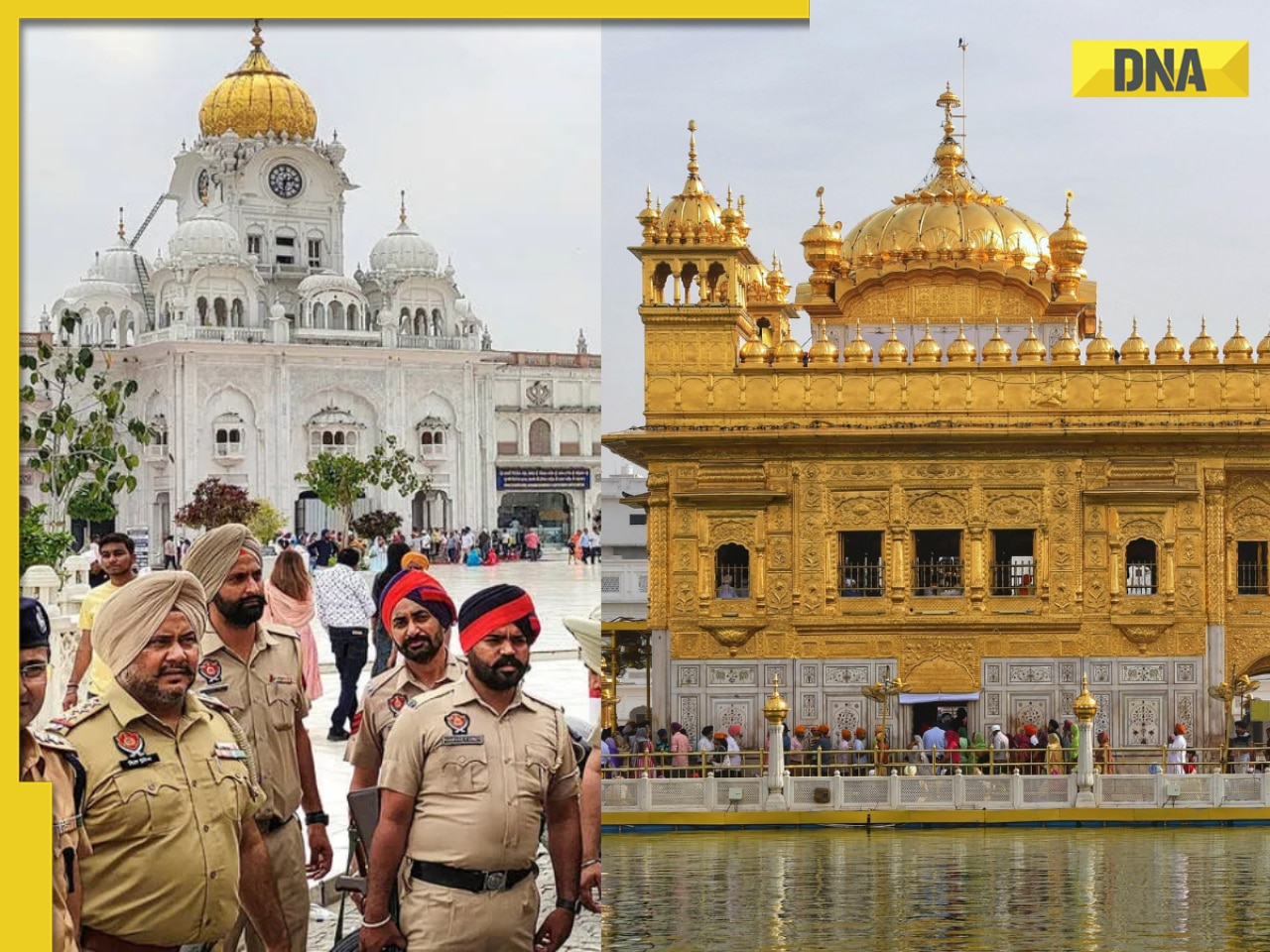 Golden Temple receives bomb threat again, second RDX email in 24 hours, probe underway
Golden Temple receives bomb threat again, second RDX email in 24 hours, probe underway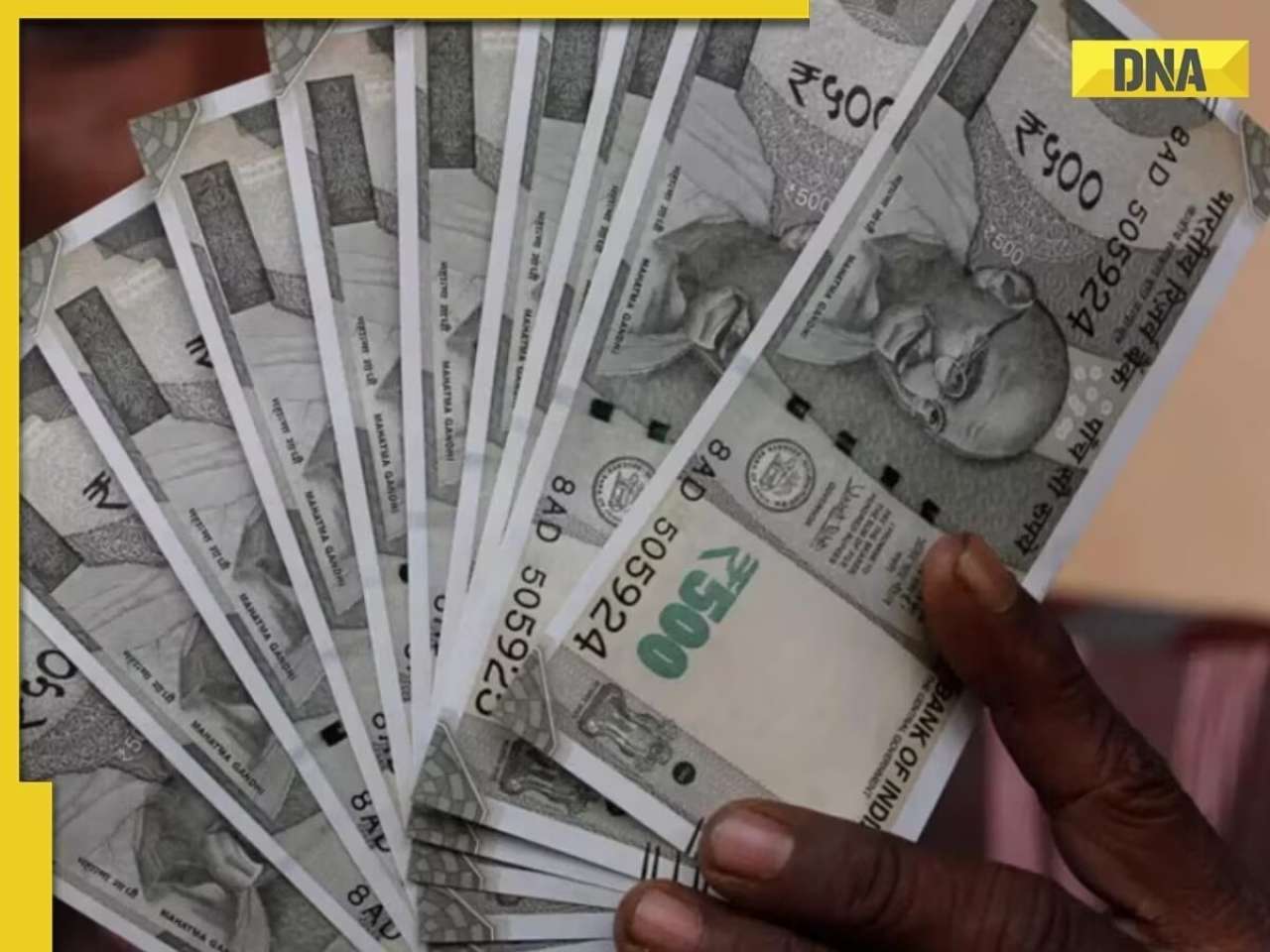 Rs 10000000000: Indians losing huge amount of money every month due to...
Rs 10000000000: Indians losing huge amount of money every month due to... DNA Verified: Samosa, jalebi, other Indian snacks to carry health warning labels? Know the truth here
DNA Verified: Samosa, jalebi, other Indian snacks to carry health warning labels? Know the truth here Meet man, who worked as waiter, later cracked UPSC exam in 7th attempt with AIR...
Meet man, who worked as waiter, later cracked UPSC exam in 7th attempt with AIR... Who is IAS officer Arpit Sagar who Fined NHAI for..., served in high-ranking administrative roles, she’s from...
Who is IAS officer Arpit Sagar who Fined NHAI for..., served in high-ranking administrative roles, she’s from...  Meet woman who left high-paying job in Switzerland for UPSC exam, secured AIR...; married to IAS, she is now...
Meet woman who left high-paying job in Switzerland for UPSC exam, secured AIR...; married to IAS, she is now... Meet woman who failed in NEET, UPSC exams, later secured Rs 72 LPA job at THIS aviation giant to become the youngest...
Meet woman who failed in NEET, UPSC exams, later secured Rs 72 LPA job at THIS aviation giant to become the youngest... This auto driver speaks 7 languages, did double MA, worked in MNCs, wanted to become IAS officer then..., is now going viral for..
This auto driver speaks 7 languages, did double MA, worked in MNCs, wanted to become IAS officer then..., is now going viral for.. This luxury car is first choice of Indians, even left BMW, Jaguar, Audi behind in sales, it is...
This luxury car is first choice of Indians, even left BMW, Jaguar, Audi behind in sales, it is... Kia India unveils Carens Clavis: Check features, design changes, price and more; bookings open on...
Kia India unveils Carens Clavis: Check features, design changes, price and more; bookings open on... Tesla CEO Elon Musk launches most affordable Cybertruck, but it costs Rs 830000 more than older version, it is worth Rs...
Tesla CEO Elon Musk launches most affordable Cybertruck, but it costs Rs 830000 more than older version, it is worth Rs... Planning to buy a Maruti Suzuki car? Prices set to rise by 4% from...
Planning to buy a Maruti Suzuki car? Prices set to rise by 4% from... Audi launches Audi RS Q8 2025 in India: Know price, specifications and unique features
Audi launches Audi RS Q8 2025 in India: Know price, specifications and unique features 




)











